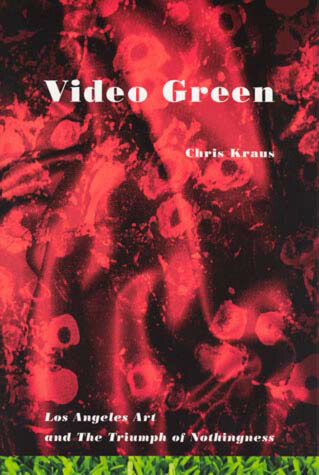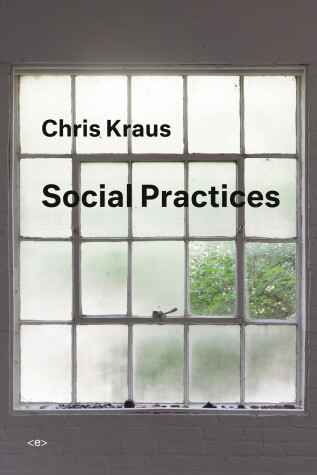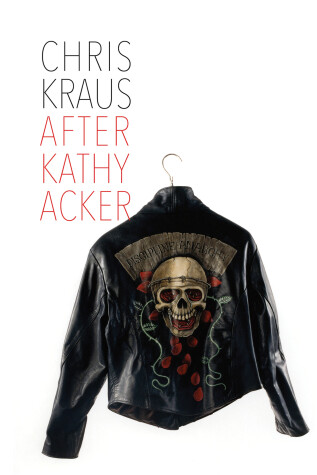Semiotext(e) / Active Agents
3 total works
Video Green examines the explosion of late 1990s Los Angeles art driven by high-profile graduate programs. Probing the surface of art-critical buzzwords, Chris Kraus brilliantly chronicles how the City of Angels has suddenly become the epicenter of the international art world and a microcosm of the larger culture. Why is Los Angeles so completely divorced from other realities of the city? Shrewd, analytic and witty, Video Green is to the Los Angeles art world what Roland Barthes' Mythologies were to the society of the spectacle: the live autopsy of a ghost city.
Essays on and around art and art practices by the author of I Love Dick.
A border isn't a metaphor. Knowing each other for over a decade makes us witnesses to each other's lives. My escape is his prison. We meet in a bar and smoke Marlboros.
-from Social Practices
Mixing biography, autobiography, fiction, criticism, and conversations among friends, with Social Practices Chris Kraus continues the anthropological exploration of artistic lives and the art world begun in 2004 with Video Green: Los Angeles Art and the Triumph of Nothingness.
Social Practices includes writings from and around the legendary "Chance Event-Three Days in the Desert with Jean Baudrillard" (1996), and "Radical Localism," an exhibition of art and media from Puerto Nuevo's Mexicali Rose that Kraus co-organized with Marco Vera and Richard Birkett in 2012. Attuned to the odd and the anomalous, Kraus profiles Elias Fontes, an Imperial Valley hay merchant who has become an important collector of contemporary Mexican art, and chronicles the demise of a rural convenience store in northern Minnesota. She considers the work of such major contemporary artists as Jason Rhoades, Channa Horowitz, Simon Denny, Yayoi Kusama, Henry Taylor, Julie Becker, Ryan McGinley, and Leigh Ledare. Although Kraus casts a skeptical eye at the genre that's come to be known as "social practice," her book is less a critique than a proposition as to how art might be read through desire and circumstance, delirium, gossip, coincidence, and revenge. All art, she implies, is a social practice.
After Kathy Acker – A Literary Biography
by Chris Kraus and Sylvere Lotringer
Acker's life was a fable; and to describe the confusion and love and conflicting agendas behind these memorials would be to sketch an apocryphal allegory of an artistic life in the late twentieth century. It is girls from which stories begin, she wrote in her last notebook. And like other lives, but unlike most fables, it was created through means both within and beyond her control.
—from After Kathy Acker
Rich girl, street punk, lost girl and icon… scholar, stripper, victim, and media-whore: The late Kathy Acker's legend and writings are wrapped in mythologies, created mostly by Acker herself. Twenty years after her death, Acker's legend has faded, making her writing more legible.
In this first, fully authorized, biography, Chris Kraus approaches Acker both as a writer and as a member of the artistic communities from which she emerged. At once forensic and intimate, After Kathy Acker traces the extreme discipline and literary strategies Acker used to develop her work, and the contradictions she longed to embody. Using exhaustive archival research and ongoing conversations with mutual colleagues and friends, Kraus charts Acker's movement through some of the late twentieth century's most significant artistic enterprises.
Beginning in her mid-teens, Acker lived her ideal of the Great Writer as Cultural Hero, and as Kraus argues, she may well have been the only female writer to succeed in assuming this role. She died of untreated cancer at an alternative clinic in Tijuana when she was fifty years old, but the real pathos of Acker's life may have been in the fact that by then she'd already outlived her ideal.


